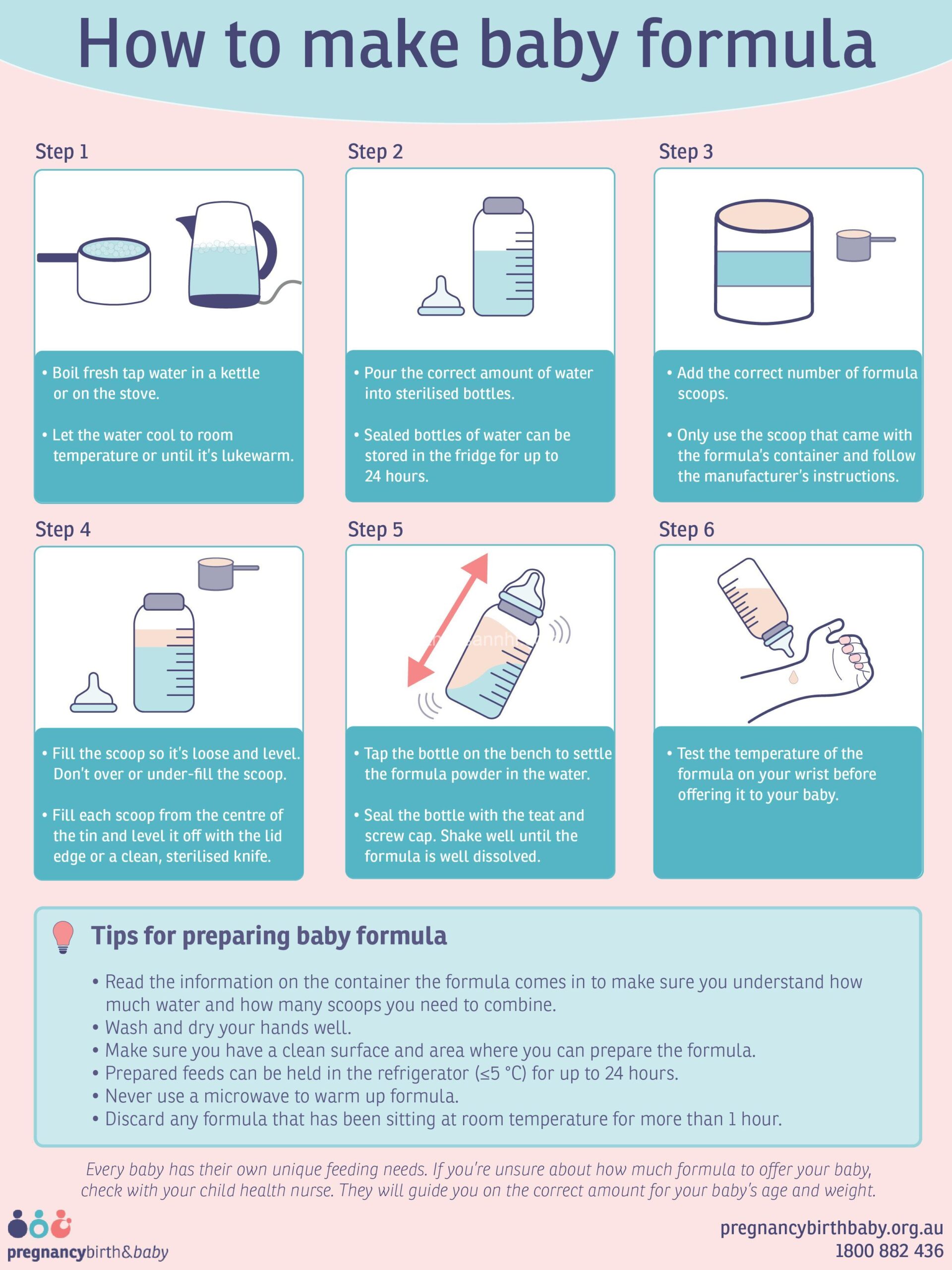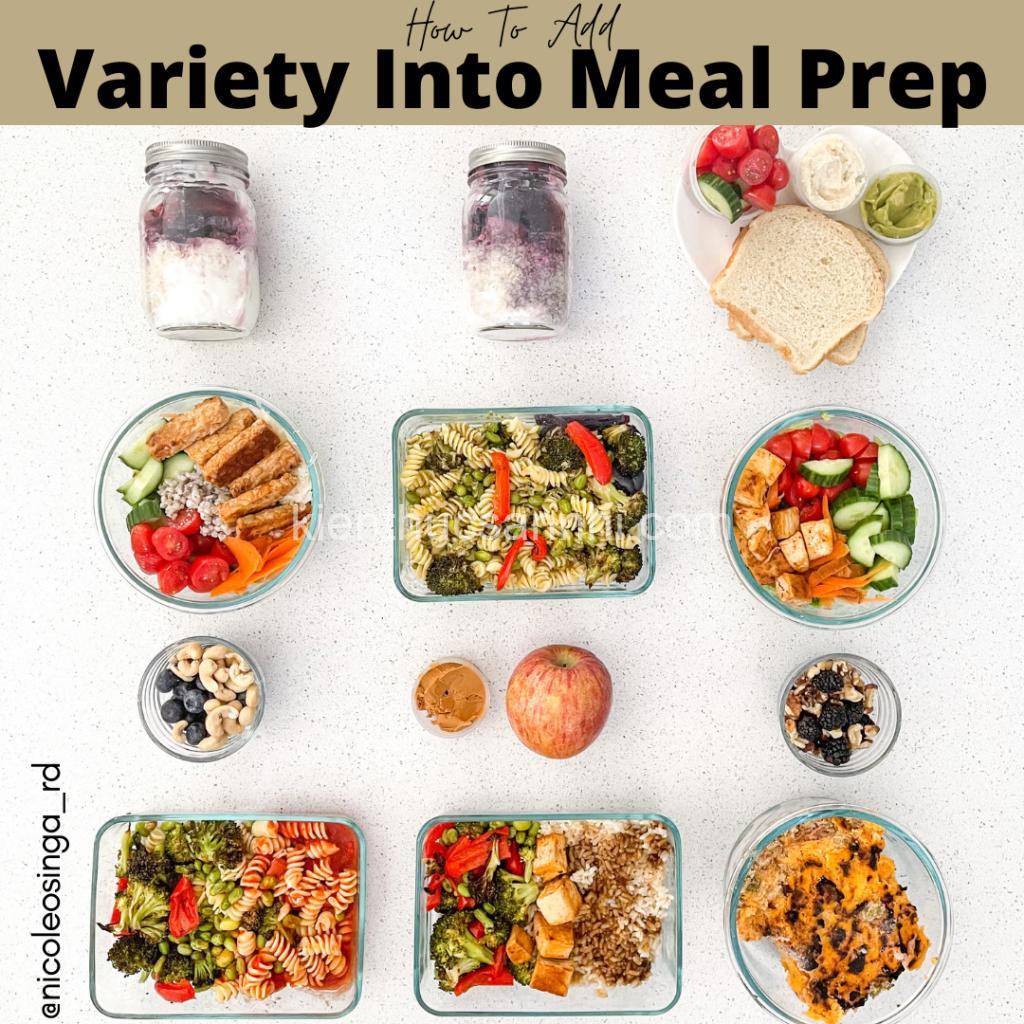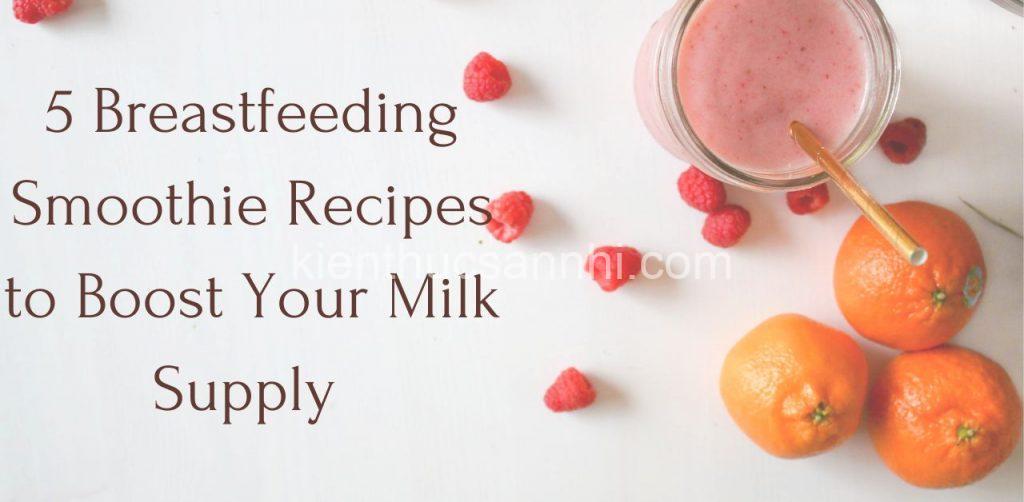
Choosing the Right Formula for Your Baby: A Guide to Understanding Needs & Types. In today’s article, kienthucsannhi.com will explore with you in the most detailed and complete way. See now!
Understanding Your Baby’s Needs
Choosing the right formula for your baby is a crucial step in their development. It’s not just about providing nourishment; it’s about ensuring their nutritional needs are met, especially if they have allergies, digestive issues, or are premature.
-
Identifying Allergies and Sensitivities:
- The first step is recognizing potential allergies. Common allergens in formula include cow’s milk, soy, and whey.
- Signs of an allergic reaction can include vomiting, diarrhea, rash, and fussiness.
- If you suspect your baby has an allergy, consult your pediatrician immediately. They may recommend hydrolyzed or hypoallergenic formulas, which break down proteins to make them easier to digest.
-
Addressing Digestive Issues:
- Babies can experience reflux, constipation, and other digestive problems.
- Different formulas have different effects on digestion. Some formulas are pre-thickened to help reduce reflux, while others contain ingredients that promote regular bowel movements.
- Talk to your pediatrician about choosing a formula that addresses your baby’s specific digestive needs.
-
Supporting Premature Babies:
- Premature babies have unique nutritional requirements.
- Specialized formulas are designed to provide the extra nutrients and support they need.
- These formulas often contain higher levels of protein, fats, and calories to support healthy growth and development.
-
Considering Other Health Conditions:
- If your baby has other health conditions, it’s essential to consult your pediatrician to discuss the best formula options.
- They can advise you on formulas specifically designed for conditions like lactose intolerance, galactosemia, or phenylketonuria.

Exploring Different Formula Types
With the understanding of your baby’s needs, you can explore different formula types.
-
Cow’s Milk-Based Formulas:
- These are the most common type, typically made with cow’s milk protein.
- They come in various forms, including standard, sensitive, and pre-thickened formulas.
- Standard formulas are suitable for most babies, while sensitive formulas are designed for those with mild sensitivities to cow’s milk protein.
- Pre-thickened formulas help reduce reflux by making the milk thicker.
-
Soy-Based Formulas:
- Soy-based formulas are an alternative for babies with allergies or sensitivities to cow’s milk.
- They are made from soy protein and can provide a complete nutritional profile.
- However, some babies may have allergies to soy, so it’s essential to consult your pediatrician.
-
Hydrolyzed Formulas:
- Hydrolyzed formulas are designed for babies with allergies or digestive issues.
- They break down milk protein into smaller molecules, making it easier to digest.
- This process reduces the chances of allergic reactions.
- They can be helpful for babies with cow’s milk protein allergy or sensitive digestion.
-
Goat’s Milk-Based Formulas:
- Goat’s milk-based formulas are a less common option, but some parents believe they are easier to digest.
- They contain different proteins and fats than cow’s milk.
- While they can be a good alternative for some babies, it’s important to consult your pediatrician to determine if they are suitable for your baby.
-
Specialty Formulas:
- These formulas are designed for specific needs, such as:
- Lactose-Free Formulas: For babies with lactose intolerance
- Pre-Thickened Formulas: For babies with reflux
- Formulas for Premature Infants: For babies born before 37 weeks gestation
- These formulas are designed for specific needs, such as:
Factors to Consider Beyond Formula Types
While choosing the right formula type is crucial, other factors contribute to choosing the best formula for your baby.
-
Ingredients and Nutritional Content:
- Formulas provide a variety of nutrients, including:
- Protein: Essential for growth and development, with different protein sources available.
- Carbohydrates: Provide energy, with lactose being the most common source in formula.
- Fats: Crucial for brain development and other functions.
- Vitamins and Minerals: Ensure your baby receives essential nutrients for optimal health.
- Formulas provide a variety of nutrients, including:
-
Ease of Preparation:
- Formula comes in different forms:
- Ready-to-feed: Pre-mixed and ready to use.
- Concentrate: Requires dilution with water.
- Powder: Needs to be mixed with water.
- Choose a formula that best suits your lifestyle and convenience.
- Formula comes in different forms:
-
Taste and Smell:
- Formula brands may have variations in taste and smell.
- Experiment with different brands to find one that your baby enjoys.
-
Cost and Budget Considerations:
- Formula prices can vary significantly.
- Balance cost with your baby’s nutritional needs.
- Look for budget-friendly options without compromising quality.
-
Formula Brands and Choosing the Right One:
- Many brands offer a variety of formula types.
- Compare brands based on ingredients, nutritional content, and your baby’s specific needs.
- Look for brands with good safety and quality standards.
Introducing and Changing Formulas
-
Consulting a Pediatrician:
- Always discuss your baby’s needs with a pediatrician before introducing any new formula.
- They can provide individualized guidance and help you choose the best option.
-
Gradual Introduction:
- Start with small amounts of new formula and gradually increase the quantity over a few days.
- Monitor for allergic reactions.
-
Changing Formulas:
- You may need to change formulas if your baby develops allergies, digestive issues, or if they are not gaining weight properly.
- Transition slowly to minimize digestive upset.
-
Ongoing Monitoring and Support:
- Continue to monitor your baby’s growth, development, and digestive health.
- Maintain regular checkups with your pediatrician.
- Don’t hesitate to seek guidance from a lactation consultant or other healthcare professionals.
FAQs about Choosing the Right Formula for Your Baby
What are the signs of a formula allergy?
Signs of a formula allergy can include vomiting, diarrhea, rash, fussiness, and blood in the stool. If you notice any of these symptoms, it’s crucial to consult your pediatrician.
What if my baby has reflux?
If your baby has reflux, your pediatrician may recommend a pre-thickened formula. These formulas help to thicken the milk, making it more difficult for it to come back up.
What are some good brands of formula?
There are many reputable formula brands on the market. Some popular choices include Enfamil, Similac, and Gerber. It’s best to consult with your pediatrician for recommendations based on your baby’s needs.
How do I change formulas?
To change formulas, start by gradually introducing the new formula while slowly decreasing the amount of the old formula. This gradual transition helps minimize digestive upset.
What are the benefits of using organic formula?
Organic formulas use ingredients that are grown without the use of synthetic pesticides, herbicides, or fertilizers. While they may have some benefits, there is no scientific evidence to prove that they are superior to non-organic formulas.
Conclusion
Choosing the right formula for your baby is a critical decision that affects their well-being. This guide provides valuable information to navigate the process. By understanding your baby’s needs, exploring different formula types, and seeking professional advice, you can provide the best nutrition possible.
For more helpful information on raising a healthy and happy baby, visit kienthucsannhi.com. Don’t hesitate to share your experiences or questions in the comments below!
Entities:
- Formula | Type | Cow’s milk-based
- Formula | Type | Soy-based
- Formula | Type | Hydrolyzed
- Formula | Type | Goat’s milk-based
- Formula | Type | Specialty
- Formula | Ingredient | Protein
- Formula | Ingredient | Carbohydrates
- Formula | Ingredient | Fats
- Formula | Ingredient | Vitamins
- Formula | Ingredient | Minerals
- Baby | Need | Allergies
- Baby | Need | Sensitivities
- Baby | Need | Digestive issues
- Baby | Need | Premature birth
- Baby | Need | Other health conditions
- Parent | Preference | Ease of preparation
- Parent | Preference | Taste
- Parent | Preference | Cost
- Formula | Brand | Enfamil
- Formula | Brand | Similac
- Formula | Brand | Gerber
Relations:
- Baby | Has | Allergy
- Formula | Contains | Ingredient
- Formula | Is | Type
- Baby | Needs | Formula
- Parent | Prefers | Formula
- Formula | Has | Brand
- Formula | Has | Cost
- Baby | Suffers From | Digestive issues
- Formula | Is Recommended For | Premature infants
- Pediatrician | Advises On | Formula choice
- Parent | Chooses | Formula
- Formula | Is Prepared | By parent
- Baby | Develops | With formula
- Formula | Is Stored | In refrigerator
- Formula | Is Purchased | From store
- Formula | Is Made From | Ingredients
- Formula | Has | Nutritional value
- Formula | Provides | Nutrients
- Formula | Is Suitable For | Baby’s age
- Formula | Is Used For | Feeding baby
Semantic Triples:
- (Formula, is, Cow’s milk-based)
- (Formula, contains, Protein)
- (Baby, has, Allergy)
- (Parent, prefers, Ease of preparation)
- (Formula, has, Brand)
- (Baby, needs, Formula)
- (Pediatrician, advises on, Formula choice)
- (Baby, develops, With formula)
- (Formula, is stored, In refrigerator)
- (Formula, is purchased, From store)
- (Formula, is made from, Ingredients)
- (Formula, has, Nutritional value)
- (Formula, provides, Nutrients)
- (Formula, is suitable for, Baby’s age)
- (Formula, is used for, Feeding baby)
- (Baby, is fed, With formula)
- (Formula, is chosen, By parent)
- (Formula, is prepared, By parent)
- (Baby, grows, With formula)
- (Formula, costs, A certain amount)





